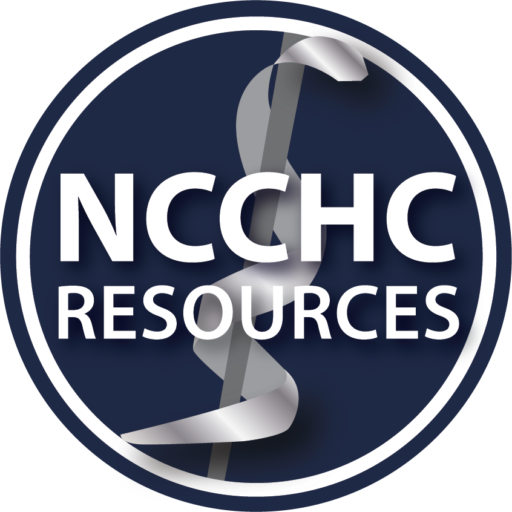Nurses are the unsung heroes of correctional health care, and it’s been a tough few years in the profession. We sat down with Nancy Booth, MSN, RN, CCHP-RN, a lead consultant for NCCHC Resources and a member of the NCCHC Accreditation Committee, to discuss the challenges facing correctional nurses today. Ms. Booth retired in 2020 as director of nursing for the San Diego County Sheriff’s Department, so she’s “seen it all.”
Staffing Woes
One of the perennial challenges in correctional nursing is staffing. It’s not just about having warm bodies to fill the shifts; it’s about finding individuals with the right blend of experience and commitment to thrive in the demanding environment of a correctional facility. The stress of working short-staffed takes a toll not only on the nurses but also on the quality of care.
Ms. Booth emphasizes the importance of building teamwork and trust. “Communicate from the beginning. Invest in them, train them, and break into any cliques that make new staff feel unsure and excluded. A sense of teamwork is critical for retention.”
In the long term, she suggests that leaders and staff reach out to nursing schools and educate students on opportunities in corrections. “Actively promoting correctional nursing in local programs and building relationships with new graduates can make a real difference,” she says. “You definitely won’t hire them if they don’t know you exist.”
Balancing Security and Health Care Needs
In corrections, the mantra of “our rules, our house” often takes precedence, sometimes to the detriment of health care. Security lockdowns, court appointments, and other logistical challenges can create barriers to providing timely and effective medical care. Additionally, there may be instances where medical needs clash with security protocols, such as during emergencies or when incarcerated individuals require off-site medical treatment.
To address this challenge, administrators and health care staff must actively advocate for their patients’ needs and work collaboratively with security staff and custody leaders. Ms. Booth notes, “Building strong relationships with command staff and fostering open lines of communication can help ensure that medical emergencies are addressed promptly and that patient care remains a priority within the correctional setting. It takes patience and education. While there will be security needs that require emergency measures, we need to educate custody leaders that there are patients in there who may need vital medication or treatment on a particular schedule.”
Managing the Unknown
One of the inherent challenges of correctional nursing is the unpredictability of the patient population. Staff often lack crucial information about newly admitted individuals, including medical history, pre-existing conditions, or new injuries. This uncertainty requires correctional nurses to be hypervigilant and prepared to adapt to a wide range of medical scenarios.
To mitigate the risks associated with managing the unknown, comprehensive training and ongoing education are crucial. Correctional nurses must be equipped with the knowledge and skills to assess and treat a diverse array of medical conditions, even in the absence of complete information. Ms. Booth says, “Again, fostering a culture of collaboration and information-sharing among healthcare providers, law enforcement agencies, and other stakeholders is critical to improve the flow of information and enhance patient care outcomes.”
Overcoming Prejudice and Ignorance
In corrections, prejudice and ignorance can manifest in various forms, from negative attitudes towards incarcerated individuals to misconceptions about the role of health care professionals. Correctional nurses may encounter resistance or pushback from correctional officers or health care personnel who view the incarcerated as undeserving of quality medical care.
To combat prejudice and ignorance, everyone on the health care team must engage in ongoing education and advocacy efforts. Providing one-on-one education and collaborating with case managers and discharge planners can help bridge the gap between providers in the facility and those outside. Ms. Booth notes, “I’ve found that hospital administrators will refuse to share patient information citing HIPAA. It can be helpful to remind them that the point of HIPAA is to ensure continuity of care, not block it. If we don’t know what happened in the hospital, we can’t provide appropriate care back in the facility.”
Navigating Political Dynamics
From funding allocations to policy decisions, the political climate can have a significant impact on the delivery of health care within correctional facilities. Additionally, negative press coverage can provide additional pressure.
To navigate these challenges effectively, Ms. Booth says, “Correctional health care leaders must prioritize proactive communication and relationship building. Engaging with public health departments, partnering with other agencies, and working closely with elected officials can help ensure that the needs of our patients are not ignored.”
Correctional nursing presents a unique set of challenges that require nurses to be adaptable, resilient, and compassionate. Mrs. Booth says “it’s definitely a calling. Through collaboration, advocacy, and a commitment to excellence, correctional nurses can make a meaningful difference in the lives of their patients and communities.”

